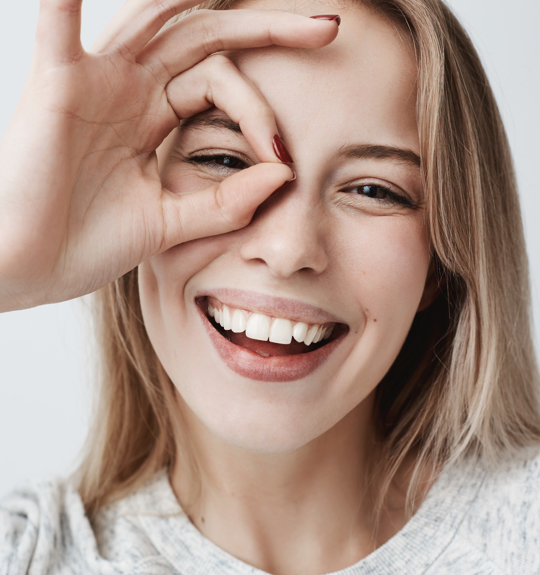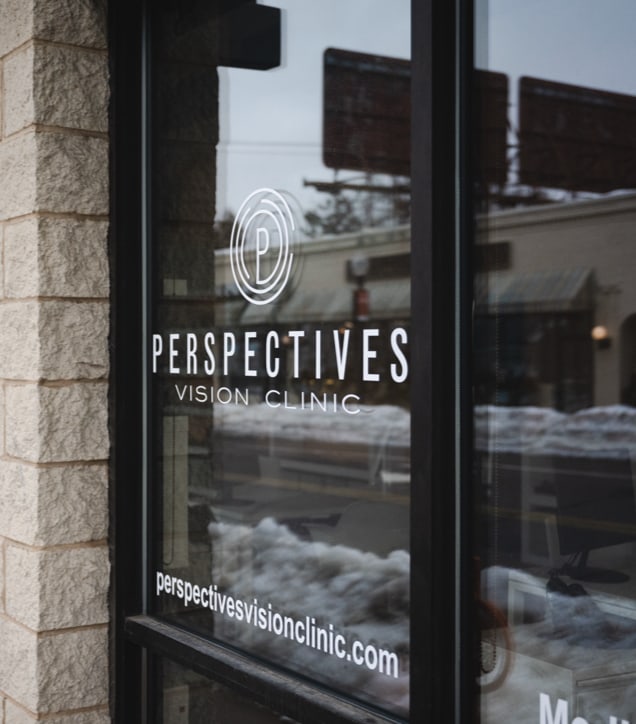Tears are made of three main ingredients: oil (called meibum), water, and mucin. The meibum creates a protective coating to keep our tears on our eyes and prevents them from evaporating too quickly, and mucin ensures our tears spread evenly across the surface of the eye. When our tears disperse too rapidly or do not spread uniformly, it can cause dry eyes.
There are several different glands in and around our eyelids that are responsible for tear production. Our eyelids naturally produce fewer tears as we age, while certain medical conditions and medications can inhibit tear production.
Environmental factors such as wind and dry climates can also cause our tears to evaporate too quickly, causing dry eyes.
Dry Eye Quiz
Tailored Dry Eye Treatment Plans
Once we have determined the underlying reason for your dry eyes, we can create a tailored treatment plan to resolve the issue. This may include nutritional supplements, at-home lid therapy, and in-office IPL and RF treatments.
The OptiPLUS radiofrequency (RF) device utilizes energy waves to penetrate various layers of the skin, enhancing blood circulation, collagen production, and meibomian gland function.
RF treatments precisely deliver heat and energy across several layers of skin, which helps to melt oil blockages in the meibomian glands and stimulates better oil production to improve the quality of your tear film and relieve dry eye symptoms by targeting the root cause.
RF is performed in the office by a trained professional. Typically, patients have 4–6 sessions within 8 weeks to see marked and sustained improvements in their dry eye symptoms. However, the frequency and duration of your treatment will be recommended after your initial evaluation.
RF also has some happy side effects. As the treatment stimulates collagen production, it can help with tightening skin laxity and smoothing fine lines and wrinkles for a more rejuvenated appearance.
IPL or Intense Pulsed Light is a promising treatment option for dry eyes. By targeting the inflammation of the meibomian glands, IPL treatment works to stimulate the production of oils needed for a healthy tear film, helping to alleviate dry eye symptoms caused by meibomian gland dysfunction (MGD).
IPL is non-invasive and drug-free, and your IPL treatment plan can be customized by your optometrist specifically to your needs.
At home treatments for dry eyes can include warm compresses, cleansing crusty lashes, artificial tears, and frequent visual breaks. When we stare at screens (including smartphones, tablets, and computers), we tend to blink less frequently. Our eyes rely on blinking to refresh our tear film, so when we don’t blink often enough, our tear film evaporates and is not adequately replaced with new tears.
One way to ensure you are taking frequent breaks is to follow the 20/20 rule: Every 20 minutes, you should take a 20 second break and close your eyes for 20-seconds. This gives your eyes a chance to rest and refresh your tear film.
Research has shown that certain nutrients, such as omega-3 fatty acids, lutein, and zeaxanthin, can help promote overall eye health and relieve dry eye symptoms. Omega-3 fatty acids, in particular, have been found to reduce dry eye-related inflammation and increase meibum production.
Omega-3 fatty acids can be found in fish, as well as nuts and seeds (such as flaxseed), vegetable oil, soybeans, and green leafy vegetables, like kale. Lutein and zeaxanthin can be found in leafy greens such as kale, broccoli, spinach, and collard greens, as well as eggs.












